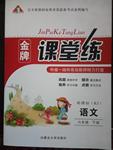题目内容
Many of today’s parents fondly remember childhood days spent playing outdoors. When children make mud pies and observe ants, it may seem like just fun and games, but the truth is the outdoor play is an important part of growing up healthily. The National Association for the Education of Young Children reports that outdoor play reduces (make…less) stress and restlessness in children and improves their attention.
Outdoor play is the perfect way to fight against the childhood’s obesity(being fat).Research shows that children who play outdoors are more fit and thin, according to the National Center for Physical Development and Outdoor Play. Children who spend time outside on a regular basis also have healthier immune (免疫) systems. And playing outdoors is a good way to get enough vitamin D.
Playing outside enables children to relax , reduces tension(紧张)and helps them solve problems. When children play outdoors, they learn to share and cooperate (work together) with one another. Kids who feel confident outdoors are likely to become able clever adults.
The outdoors is a giant laboratory for learning that improves creative thinking and problem solving. Researchers have found that children learn best when their body, mind and spirit are involved (牵连的), and this appears in outdoor play. Outside activities develop all five senses, which create a powerful learning environment. The outdoors also lets children have the chance to explore (探究), experiment, form questions and create their own ideas about how the world works.
Although there are the many advantages of outdoor play, time spent outside has been reduced for many of today’s children. Kids today spend much more time in front of electronic media than children a generation (代) ago. The lack of outdoor play is tied to the childhood widespread obesity. And experts predict that the situation is so serious that this generation will have much trouble when they grow up. To get kids involved with the outdoors, encourage them to collect rocks, fly kites, climb trees, garden, camp, swim, go fishing, watch birds and butterflies or play games with other children.
1.Why don’t the children play outdoors nowadays?
A. Because their parents prevent them from going out.
B. Because they spent time on computers and so on.
C. Because their parents want to make them indoors.
D. Because they do not know what to do outsides.
2.According to the article, most children face the problem of __________________.
A. telling the truth B. lacking learning environment
C. being too fat D. solving problems quickly
3.The outdoors is considered a giant laboratory because children can_________________.
A. learn to share and cooperate with one another
B. have healthier immune systems with vitamin D
C. improve their attention by playing with friends
D. get the chance to explore and create ideas
4.Which would be the best title for the passage?
A. Value of Outdoor Play
B. Reason of Staying Inside
C. Ways of Playing Outdoors
D. Methods of Teaching Children
 金牌课堂练系列答案
金牌课堂练系列答案 三新快车金牌周周练系列答案
三新快车金牌周周练系列答案
